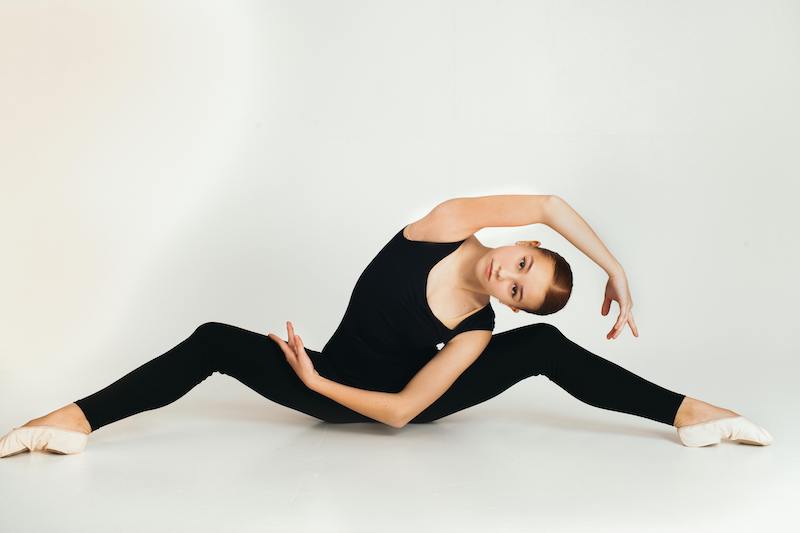How to calm anxiety can be one of the top google searches nowadays. Because we are humans, we all prone to it.
Anxieties can be justified or not, but at the core, it is all the same. It makes us uncomfortable and interferes with our normal life.
I prepared 13 authentic and really working ways to calm your anxiety immediately and bring you the desired relief. Let’s get to it.
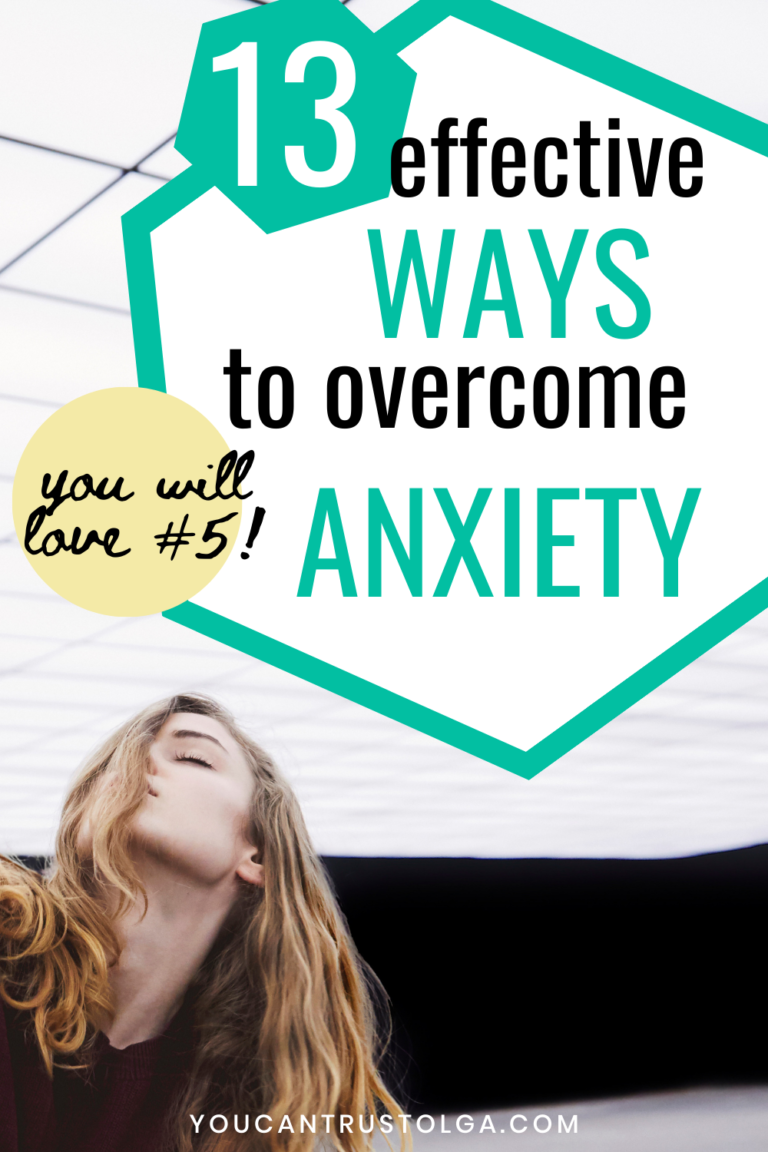
UNDERSTANDING THE SCALE OF THE PROBLEM
Definition
Anxiety is a physical sensation accompanied by compulsive repeating thought patterns that reinforce it. It is a sustained and excessive thread of worry that takes you on a ride loop by loop.
I know what I am talking about – anxieties and panic attacks are my long-time “friends”. I can tell from my own experience how uncomfortable and annoying it is.
The importance
What I have learned, is that anxiety is our nature. It is in our DNA, a default setting so to speak. And it only intensifies in this high-paced and demanding day and age we live in.
If we don’t do anything it will only seep deeper into all spheres of our life and will affect our daily functionality.
But on the brighter side it has been proven, that although we can’t get rid of anxiety completely, we can definitely lower its intensity.

1. learn to accept your anxiety
We all don’t like the feeling of being anxious, but what is so scary about it? What it can do to you?
Accepting anxiety sounds illogical, but think about it: Did ever resisting a negative feeling or emotion actually helped? It is like trying to not think about something – the harder you try the more you think about it.
So might as well give up and accept it.
I once heard funny advice. During panic attacks, many people experience strong fear of death. The author of the book I was reading, suggests in such situations to lay down and really really really try to die.
Yeah, right, very funny. Anybody who ever experienced intense fear of dying during an anxiety attack will agree that it is impossible. But it is not the point.
My best experiences with panic attacks and anxieties happened when I was able to surrender. Meaning, I wasn’t escaping it, wasn’t distracting myself and wasn’t panicking. Instead, I just let it be.
When surrendered, you learn that the nature of anxiety is temporary, and like a wave, it comes and goes. And if you don’t do anything – eventually it minimizes to almost nothing and you will overcome anxiety almost effortlessly.
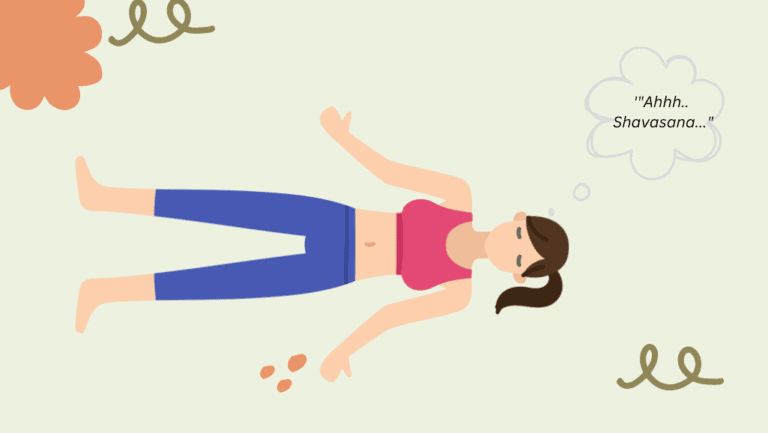
2. Breathing deeply will calm anxiety
I am not a fan of breathing techniques, although people claim it helps. I just think it requires practice and take certain characters to commit to it.
Rather I suggest simple and intentional deep breathing in and out.
It is a little effortless ritual that
- implies that anxiety is noticed, and
- helps to refocus and restart the momentum.
This effective way to calm anxiety requires almost nothing. Do you think you can do it?
3. focus on the present moment
I like the idea of THE NOW. It is very potent and there is real power behind it. I even believe that only there we can find real help to completely get over anxiety.
A couple of times in my life I had glimpses of how life can feel like when you are totally surrendered in the present moment. It is hard to explain verbally but it feels like home. And definitely, there is no anxiety there.
Unfortunately, it doesn’t last long as it is not a very natural state for us.
But here is what you can do in order to tap into it.
Practice
Next time you notice that you are anxious, bring yourself to the moment by:
- observing for a few moments your heartbeat or your breathing,
- bringing attention to your feet and feeling the ground,
- focusing on hearing, catching as many sounds as you can,
- observing your most recent thought.
Do all of it until you can, before you get distracted. No pressure, it is not an obligation. Stop any time.
Tip
You can also create a little move that anchors you to this small practice. For example, when I find myself anxious while driving in the car, I usually place my hand on the knee and concentrate on the contact feeling. It reminds me to stay present.
4. make physical activity your friend
Physical activity indeed is a good way to deal with anxiety. It is a natural and most effective way to feel good. Adding exercising to your routine will improve the intensity of anxiety. In fact, it should be number one habit to adopt for anyone who wants to improve life one way or the other.
In my opinion, the most effective and proven exercise type that really helps to get rid of anxiety is cardio. It does magic to me. I see a huge shift to a better in the frequency and intensity of the anxiety attacks when I’m consistent with my cardio routine.
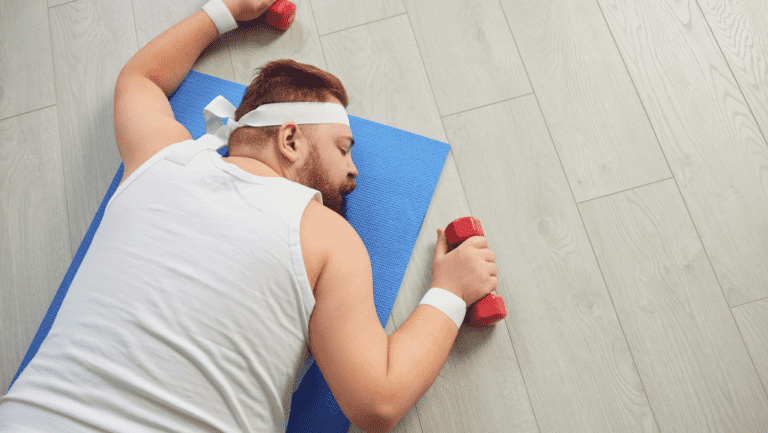
Besides that, physical activity is a natural way to calm anxiety fast in the moment of the actual attack.
As soon as anxiety hits, take a few minutes to get it out of your system. Depending on your location and situation you can pick to do
- few sets of Jumping Jacks,
- run up and down the stairs,
- dance like a maniac to your favorite music, or
- sprint around the block like Forest Gump.
5. Smiling can calm your anxiety
In order to calm anxiety in the body, we want the body to believe that everything is great.
There is a simple thing that you have to understand. When you are anxious – the body tenses up and when the body tenses up – you get anxious. It creates a loop in which you stay in and can’t get out.
In order to break the loop, simply… Smile!
Smiling for no reason, at first will feel fake, especially if you are in the midst of fear and worry. However, I noticed that as I start smiling, good-feeling thoughts magically start to come to my mind.
But you don’t have to believe my words. Try for yourself and see if that can calm your anxiety.
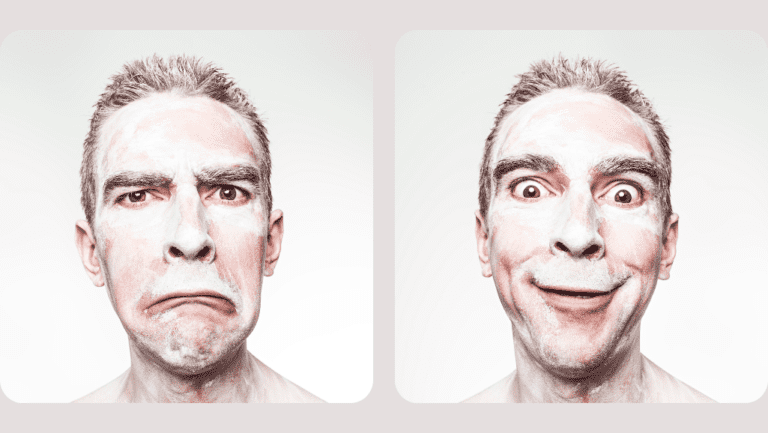
6. Show some self-compassion
Without doubt, we love getting hard on ourselves for almost everything.
If during the anxiety attack, you experience negative feelings towards yourself, you only make the situation worse.
Removing this additional layer of feelings is a necessary condition to calm anxiety.
I suggest that instead of criticizing yourself and experiencing blame, shame, anger or embarrassment you start practicing self-compassion.
Something to think about
You can use your anxiety attack episodes as a good opportunity to practice self-love and self-compassion.
What you can do, is every time you notice self-criticizing thoughts, stop and think of the words you would say to a dear friend in the same situation.
Would you shame your friend for having an anxiety meltdown? I doubt that.
So why don’t you give yourself some love?
7. rationalizing will not help
Usually, anxiety comes with a lot of negative thinking. Most likely rationalizing these anxiety thoughts will not help. But seeing the bigger picture behind can.
Try something different. Instead of arguing that your anxiety is not legit and calling the validity of it into question, become a philosopher.
For a few moments:
- Ponder the insignificance of certain “problems” when they are looked at from the universal perspective
- Remind yourself that nothing stays the same in life and everything moves. Events, situations, thoughts, feelings and emotions – everything will pass
- Think of life’s finiteness and imagine how this little moment of anxiety disappears in time
- Contemplate other people’s lives and the much more serious struggles they are going through.
8. share your anxiety or say it out loud
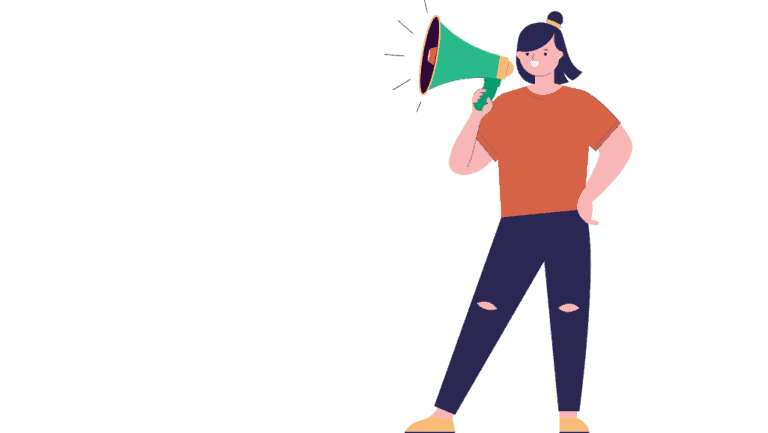
Sharing helps. Venting out your situation to someone else, while focusing mostly on the feelings and emotions brings relief. Why else do we have friends and voice messengers?
Most of the time you don’t even need a reply. It is not about finding a solution – it is just about draining this anxiety out of your body and dissolving it in the air.
Try this
If you can’t think of a person to share with, record the message for yourself. Give yourself some airtime by verbalizing the anxiety, and turn the volume all the way up.
Exaggerate and be dramatic, cry if you can, let it all out. You will notice how very soon your mind will become more pleasantly engaged.
In reality, simply saying out loud “I feel anxious right now” already is a huge deal. By doing so you become aware of anxiety and bring it from an unclear and vague internal world to an oblivious and tangible physical plane.
9. redirect your energy instead of suppressing it
Anxiety is a strongly fueled force and as you give it attention it is only getting bigger. There is a lot of energy potential hidden behind it. How about you take advantage of it and use this energy for something more constructive?
It is interesting
It is well-known fact that the most venerable geniuses of all times who left behind a valuable legacy for humanity experienced a lot of mental health issues, including acute anxiety and panic attacks.
Nietzsche, Dostoevsky, Schopenhauer, Beethoven, Tolstoy, Hemingway, Van Gogh – the list is endless.
And who knows maybe their infinite creative potential can be attributed to the mental struggles they had and how they managed to use them to their own benefit.
And who knows maybe you are a genius as well?
So if you have small hobbies, or if you know some talents that you have why don’t you shift your attention towards them each time you experience worry or fear? Reframing anxiety into something you get excited about can not only stop anxiety thoughts but also improve your personal achievements. It’s a win-win!
10. have you own mantra
Mantra is a soothing affirmation-like sentence that you repeat to yourself during critical moments.
It is important to understand that the mantra must reflect your personal beliefs.
No matter if it is just one word or a phrase, it needs to resonate with you.
Examples of single-word mantras can be:
- Calm
- Peace
- Relax
- Breath
- Now
Feel free to use my personal favorite phrases:
- All is well
- And that shall pass
- Things are always working out for me
- May I feel peaceful
- May I accept life the way it is
- We are all in this together
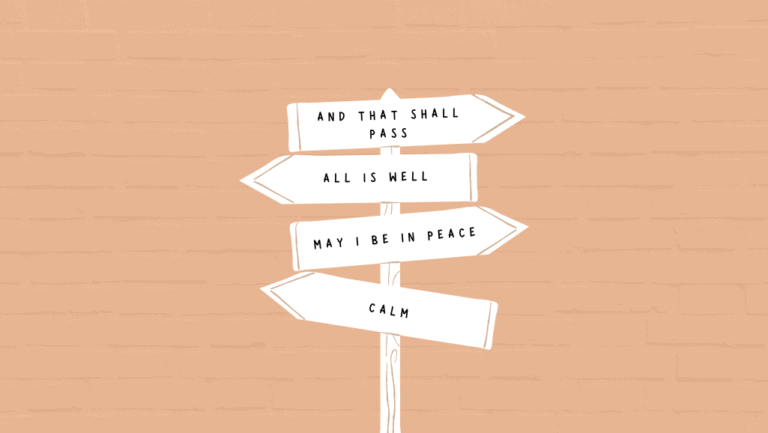
11. use journaling as a tool to overcome anxiety
Ughh… I don’t know what should happen for me to start journaling. But I am adding it here because I had experience with it and I know it works.
I recently found a couple of pages from my once-attempted diary. What surprised me is that I couldn’t remember that particular occasion of my anxiety attack.
Why?
What happens is that when we are in a midst of a bad tantrum we get completely absorbed in it and are unable to see reality clearly. But once a painful moment is gone we successfully erase it from the memory.
Finding and reading what I was going through at a particular moment gave me a different perspective on my anxieties.
Now when I’m anxious I know that my reality in this particular moment can be distorted. This knowledge gives me extra strength to cope with anxiety attacks.
If you like me don’t like the whole idea of keeping a journal, simply use it for a temporary relief. Express your worry on a piece of paper and destroy it after you are done.
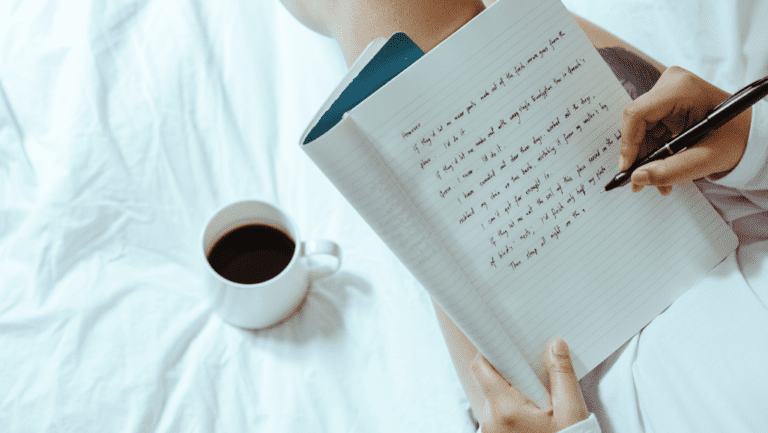
12. get some fresh air
There is something special about the outside. Undoubtedly, being locked in without a possibility to get out can drive anyone crazy. The pressure of walls and ceilings and natural light limitations altogether can easily bring out the anxiety.
For many people, the first aid during an anxiety attack will be going outside to get some air. Taking a stroll around the block or walking a dog can sometimes be enough to feel better and calm anxiety.
13. embrace anxiety into your life
In this life, we experience the world through our physical senses. For the most part, we use our bodies to see, smell, touch, hear and taste. In addition, we have feelings, emotions and thoughts. Overall, that’s not too much if you think.
By rejecting anxiety and other, labeled as “negative”, sensations we are limiting ourselves even more.
Really, why would we exclude a significant part of our life experience, even though it is not pleasant?
Indeed being in a physical body is a very exclusive state and it involves a wide range of experiences. And as much as we like we cannot “unsubscribe” from the part that includes emotions like sadness, worry, fear, grief, etc.
So why don’t we accept it as a part of the whole puzzle?
Embracing life as it is, and learning to love your low moments equally as high is a life philosophy. It is a position you deliberately take, and by taking it you do yourself a big favor.
As soon as you stop fighting back, resisting, complaining and trying to control what is going on and how you feel, you will gradually start feeling better and the quality of your life will markedly change. It must.


